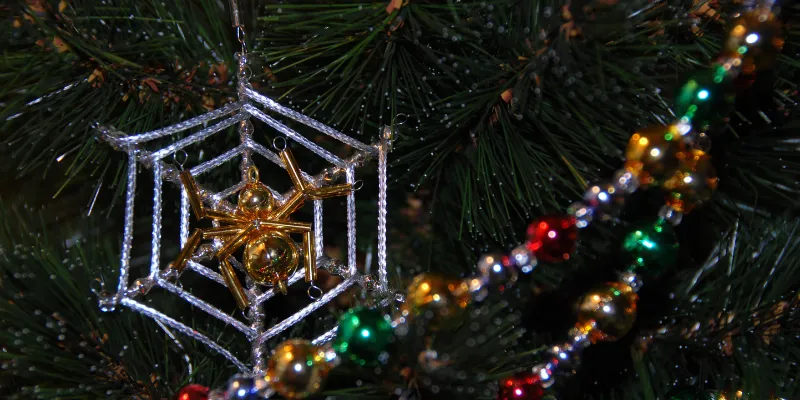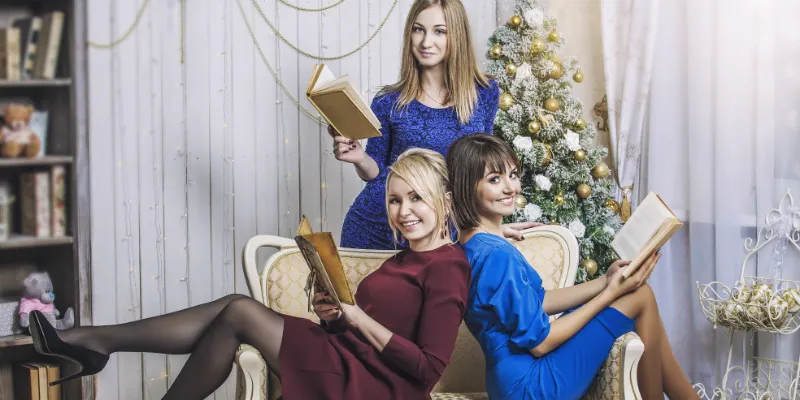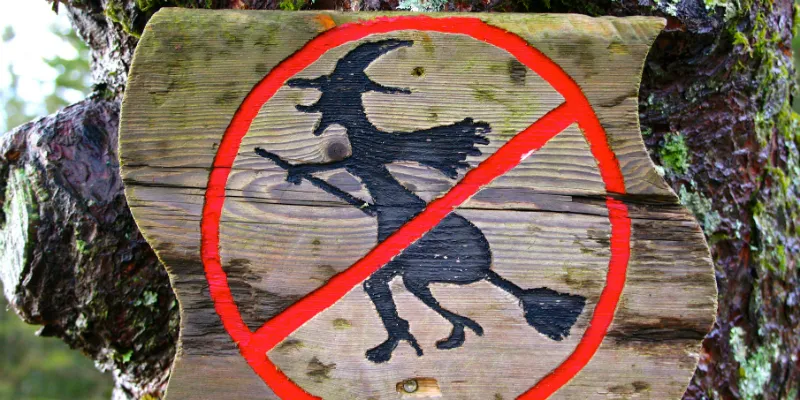Feliz Navidad: Christmas trivia down the ages
If you’ve ever wondered about Christmas traditions and rituals, here’s an overview of the legends, facts and stories of the season.
‘Tis the season to be jolly, as the old carol goes and so the streets and halls are decked with holly, the silver bells are ringing and Santa Claus just might have a bag full of goodies for you. But did you know that many of things that we follow during Christmas have a deeper story behind them. Here are some fun facts, stories and traditions from around the world…
The tree and its lights:

Christmas tree with candles for the season
The Christmas tree was first decorated by the Protestant reformer Martin Luther, who was awestruck by the magnificence of starlight bouncing off the leaves of a tree. He took the tree home and decorated it with candles for his children. It is said that this where the tradition of the Christmas tree began. The first artificial tree, however, was made in Germany with dyed goose feathers.
Carol creation

Carollers can be heard on the streets during Christmas
Some of the songs that we sing for Christmas were not made for the holiday, but for a fun time with friends and family. ‘Deck the Halls’ is a Pagan Yuletide drinking song, the melody of which is taken from a 16th century Welsh song called ‘Nos Galan’. In 1862, the English version was popularised.
A Montgomery Ward copywriter made ‘Rudolph the Red-nosed Reindeer’ in 1939, to lure customers into their store.
The fast-paced ‘Carol of the Bells’ finds its roots in a Ukrainian folk chant sung on New Year’s Eve that talks about a swallow flying into a house to sing about prosperity in the following spring.
The popular ‘Jingle Bells’ was initially a Thanksgiving song, originally called ‘One Horse Open Sleigh’.
Folklore galore

Spider web decorations
The beauty of a finely woven spider web can be seen on the Christmas trees of Polish households. According to their legends, a spider wove the blanket that kept Baby Jesus away from the cold. A similar ‘Arachnophilic’ culture is practiced in Ukraine, in memory of a poor widow who once upon a time, decorated her Christmas tree with spider webs that were glistening with gold and silver streaks in the morning.
In Russia, a Babushka (grandmother) is said to bring gifts to the children. The story is based on the Biblical story that talks about an old woman who did not bring gifts for Baby Jesus, but does so now in repentance.
Knecht Ruprecht (Farmhand Rupert) is the companion of St. Nicholas, according to German folklore. He would ask children if they knew their prayers and if they did, they were rewarded with apples, nuts and gingerbread. If they didn’t, they were punished severely.
Timeless traditions
Iceland has a fun tradition of exchanging books on Christmas Eve and they spend the night reading these books with chocolate to munch on; this is called the ‘Jolabokaflod’ or ‘The Christmas Book Flood’. Iceland produces more books than any country, and most of them are sold between September and November.

Book exchange is an exciting Christmas tradition in Iceland
On December 7, Día de las velitas or ‘Little Candles’ Day’ marks the beginning of the Christmas season in Colombia. People place candles and paper lanterns on their windowsills, balconies, front yards and around the neighbourhood. In Quimbaya, the different neighbourhoods compete to see who makes the most impressive arrangement.
In Norway, the locals hide brooms in their homes on Christmas Eve to prevent witches from stealing them for a midnight ride. They also leave a bowl of hot porridge in the barn as gratitude for the gnome who looks after the farm.

Hiding the brooms in the house is a tradition in Norway
Jamaicans dress up in detailed costumes and celebrate Christmas with ‘Junkanoo’ dancers, based on an African dance.
The Yule Goat is built with straw to a height of 13-metres in Gävle’s Castle Square in Sweden, and the people try to burn it down. Since 1966, it has been burnt down successfully 36 times until 2016. While in Caracas, Venezuela, people skate across the city to their churches early in the morning on Christmas Eve. They stop using their vehicles during this time.
Japan is famous for their healthy diet of fish and rice. However, on this day, they have their meal at KFC every year. They place their orders many months in advance to ensure 30,00,000 orders for the day.
Christmas means different things in different communities. But the one thing they all share in common is the tradition that holds them together.







